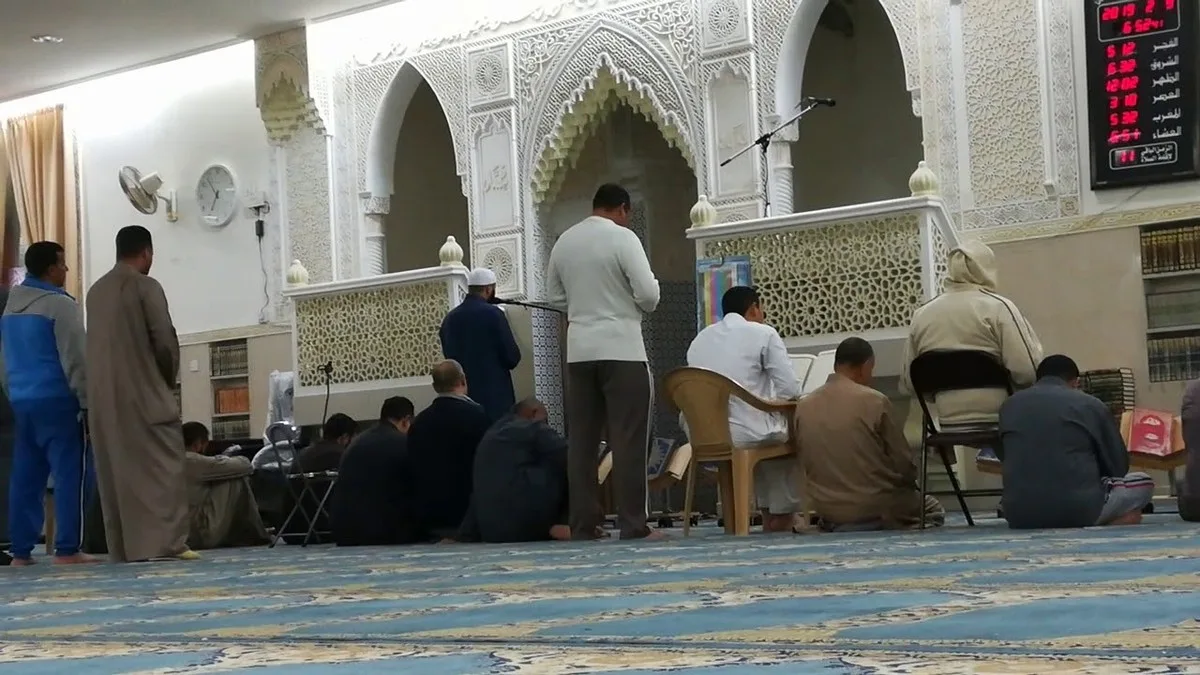21/11/2024
21/11/2024

KUWAIT CITY, Nov 21: Several religious clerics stressed the importance of Muslims staying at home to perform Friday prayers or the five obligatory prayers if they are experiencing a cold or flu, to prevent the disease from worsening and to avoid transmitting the infection to others in mosques. In response to some clerics who believe there is no explicit text requiring those with a cold to stay at home, they explained that these individuals focus solely on the literal interpretation of the texts. They overlook all the verses and hadiths (sayings) of the Prophet that stress the importance of not causing harm to others. This is particularly relevant since those infected with a cold can harm those around them, especially as wearing a mask may not fully prevent the spread of infection.
According to the Islamic preacher Dr. Rashid Al-Oleimi, individuals infected with the flu should stay at home and not be required to attend congregational prayers in the mosque for the five daily prayers or Friday prayers. The issue arises when some people cite hadiths about the importance of obligatory mosque prayers without considering the individual's illness, such as a cold. Congregational prayers are a recommendation rather than a strict obligation, depending on the situation.A person suffering from a cold could transmit the infection to those praying next to or behind him, especially when sneezing, which can spread the virus. Such a person should stay at home, in line with the hadith that states, "There should neither be harming nor reciprocating harm." The meaning of this hadith is that a person should not harm themselves or others.
If a person wishes to go to the mosque but is prevented by illness or fears for their own health or the health of others, they will still earn the reward of congregational prayer because they refrained from attending out of concern for themselves and others.If someone insists on praying in the mosque while suffering from a contagious illness, knowing that others may be at risk of infection, they could be sinning.
Suppose Islam is concerned about preventing harm or inconvenience from things that are not harmful, such as garlic and onions. In that case, the situation is even more serious for someone suffering from a cold.Dr. Al-Oleimi referenced the saying of the Messenger of Allah (PBUH): "Whoever eats from this tree, meaning garlic, should not come near our mosque."He said, "This noble prophetic hadith highlights the importance of preventing harm and inconvenience to people in mosques, even from the smells of food. Someone who has a cold and sneezes in the mosque can cause discomfort and distraction for those praying, leading them to lose focus and humility during their prayer.
Therefore, a Muslim suffering from any contagious disease, whether a cold or otherwise, should perform their prayers at home."Regarding those who issue fatwas claiming that there is no clear text in the Quran and Sunnah requiring someone with a cold to stay home, Dr. Al-Oleimi said such fatwas should be based on both direct evidence and analogical reasoning. He said, "Where is the one who prays in the mosque while afflicted with a cold in light of the Almighty's saying, "Allah does not charge a soul except with that within its capacity. It will have [the consequence of] what [good] it has gained, and it will bear [the consequence of] what [evil] it has earned. Our Lord, do not impose blame upon us if we forget or err. Our Lord, and lay not upon us a burden like that which You laid upon those before us. Our Lord, and burden us not with that which we cannot bear. And pardon us, forgive us, and have mercy upon us. You are our protector, so give us victory over the disbelieving people"?This matter also requires strict attention to those known for neglecting to perform congregational prayers in mosques. Their behaviour becomes problematic, especially as people gather around them after the prayer. Their insistence on attending the mosque while suffering from a cold can potentially spread the illness to others. A mask may not be enough to prevent the transmission of the infection."In a related context, Islamic preacher Sheikh Saleh Al-Ghanim stated that it is permissible for a sick person with a mild cold to miss Friday prayers and the five daily prayers in the mosque, especially if attending would be difficult. However, a person with a mild cold can still attend congregational prayers in the mosque while wearing a mask to avoid inconveniencing others. In this regard, the Imam of a mosque Sheikh Ahmed Abu Ibrahim highlighted the great merit of praying in congregation at the mosque.
He explained that while waiting for the prayer, the angels ask for forgiveness on behalf of the worshiper, and this continues even after the prayer. Also, the Muslim earns a reward for each step he takes to and from the mosque. The greatest merit is the increase in good deeds, as the Prophet (PBUH) said: "Prayer in congregation is twenty-seven times better than prayer alone."However, the situation differs in certain circumstances, as the Messenger of Allah (PBUH) said: "Whoever hears the call to prayer and does not respond, his prayer is not valid, except for an excuse."It is understood that the "excuse" mentioned in this hadith includes conditions such as illness, fear, or other valid reasons. Therefore, someone suffering from a cold should pray at home. Sheikh Saleh Al-Ghanim expressed concern over the tendency of some religious scholars to adhere strictly to the literal meaning of texts without considering the context of all hadiths. He said, "It is important to note that if a fatwa is issued stating there is no explicit text requiring someone with a cold to pray in the mosque, the response should be that Islam is a religion of ease and tolerance, not one of extremism or causing harm to Muslims' lives."Sheikh Saleh Al-Ghanim highlighted the teachings of the Messenger of Allah (PBUH), who said, "Make things easy and do not make them difficult. Give good news and do not repel", as Allah Almighty said: "And He has not placed upon you in the religion any difficulty".
By Najeh Bilal
Al-Seyassah/Arab Times Staff


